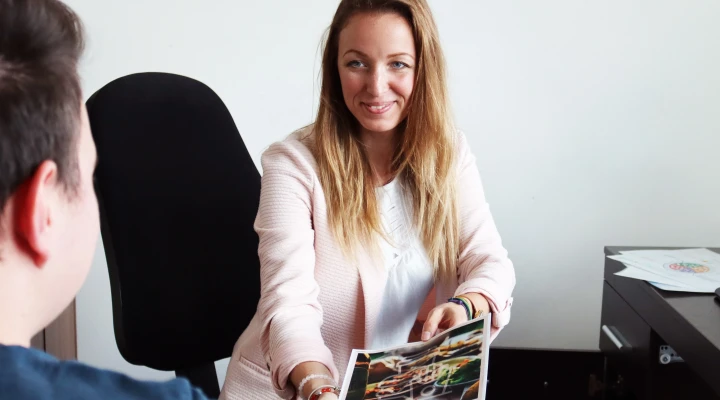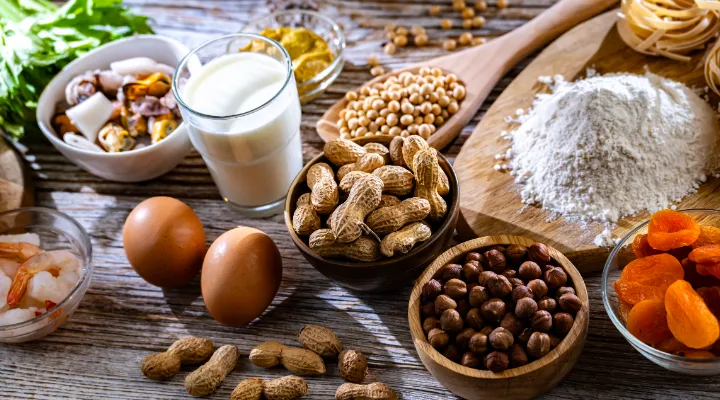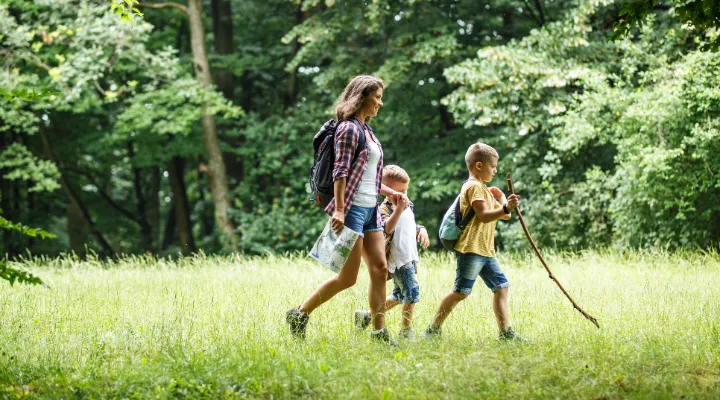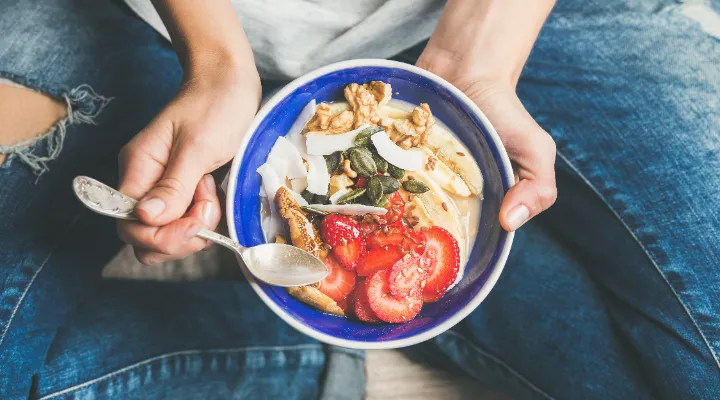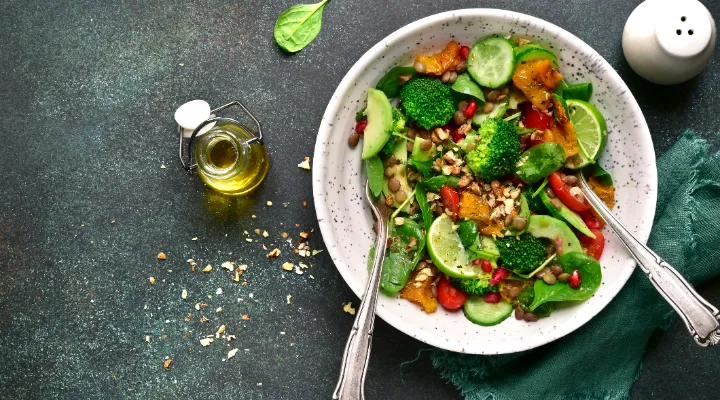You both seem like passionate people, what pushed you in the direction of nutritional science?
Valentina Doma (VD): When I was a teenager, I was interested in biology and the workings of the human body, and the digestive system in particular. As a younger child, unfortunately one of my family members fell ill with cancer. I developed an interest in preventing cancer, reversing or slowing down the disease, and improving quality of life. Nutritional science has proven to be the right direction to satisfy my curiosity. My dissertation research also focused on this topic: I studied the effect of artificial food additives in processes that can lead to inflammation and cancer.
Emese Eszter Kudron (EEK): Ever since I was six years old, I have wanted to help people. Instead of a doctor, I became a dietician, a profession that earlier I didn't even know existed. But I also love eating and cooking, and this was another strong motivating factor in my choice of career.
Emese Kudron, you have been looking after the health of RMC patients for a long time. How do you complement each other's experiences?
EEK: I believe in intuitive eating, which has been a well-researched, evidence-based, rapidly developing field in dietetics since 1995. For some time I had been looking for a professional partner so that we could combine our knowledge. I wanted to offer our patients more comprehensive support for an approach to nutrition based on their own personal feelings about their body. I find it both frightening and really unhealthy that so many people don't enjoy eating. In addition to being unsustainable in the long term, extreme diets can lead to nutritional deficiencies and mental strain.
VD: Because of my university teaching work, I try to read the latest research findings to make sure I am as up-to-date as possible in the field of nutritional science. In addition to conventional topics in dietetics (e.g. insulin resistance, sensitivity to gluten), I am also really interested in the relationship between your mind and nutrition, the effect of nutrition on your mental health, and nutrition and eating disorders. How do our emotions affect our eating habits? Do we eat more or less when we are stressed, and why? How can we influence this? Have I been nurturing a healthy relationship with food? I feel guilty after eating food, and I want to stop myself eating pre-packaged foods. Does that mean I now have an eating disorder? These are the kind of questions I like to discuss with my patients.
Can you tell us about some examples where you felt that you were able to achieve a genuine difference in the quality of life of your patients?
VD: The lab results for one of my female patients showed us that she had above-average levels of cholesterol, triglyceride and LDL. She was slightly overweight, which bothered her, and she often had feelings of guilt when she was eating. She wanted to do something for her health, take charge of things and rise above her emotions, to change her diet and be proactive in order to ensure she felt comfortable in her own skin – this is why she came to me. At our first meeting, we spoke about some basic information on healthy eating and identified three easily achievable goals. When she came back for her second consultation two months later, she was blooming. She happily told me she had succeeded in completing her first three goals and that she was ready for the next three. Her relationship with her body and food improved, she was less anxious, and it also had a positive effect on her relationship with her partner, while the concerning levels identified in the lab tests were restored to normal.
EEK: That reminds me of when a very pretty lady came to see me. She followed a completely unnecessarily diet where she only ate 160 grams of carbohydrates per day and didn't allow herself to eat any sweet stuff or pizza, for example. Thanks to our consultations, she was able to once again enjoy eating and get rid of that feeling of guilt she had linked to eating disappeared.
What was the most useful piece of advice you have received in relation to your own eating habits?
VD: For me, I would say that varied seasoning can work wonders. With a mixture of my favorite dried green spices (oregano, basil, marjoram and rosemary), I always sneak a bit of Italy into the kitchen, whether it’s flavoring a single bowl of food, salads, side dishes (e.g. potatoes), pasta or even meat (or meat substitutes).
EEK: My biggest 'wow' experience was when I was at university and we had to eat 400 milliliters of yogurt every day as part of some research into intestinal flora. It may have been very boring, but it really sorted out my metabolism. As a practicing joyful eater, I advise people to be brave with their diet and dare to refresh, to try new things, to experiment. It's possible that if you taste something now that years ago you didn't like, it might become your favorite food (squash stew, for instance)!
What advice would you give to patients in terms of their health at the start of spring?
VD: In Hungary, there are more and more locally produced vegetables and fruit. Don't be afraid to try things, to brighten up your diet with green leaves, for example with rocket, spinach and this season’s favorite: wild garlic! Go to the market or fruit and veg stalls, speak to the seller, get a bargain, ask for a taste – try to create a relationship and make your shopping trip more enjoyable. It's getting sunnier and sunnier and the temperature is also perfect for a bit of gardening and for planting herbs and seasonal crops. If you don't have your own garden, or a small terrace, you can go to a community garden – you can rent a piece of land and grow your own vegetables, fruits and herbs. Because there is no doubt that your homegrown produce is always the tastiest!
EEK: Get out into nature as much as possible, either with company or on your own – hugging a tree is an unforgettable experience! Give yourself time to relax, because if your mind is in the right place, then you will be more in tune with your own feelings and your eating habits will also become more intuitive.
You can soon read the second part of the conversation on the RMC blog!
